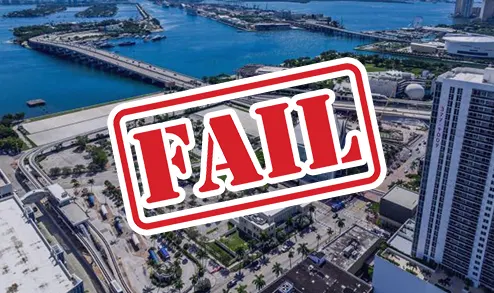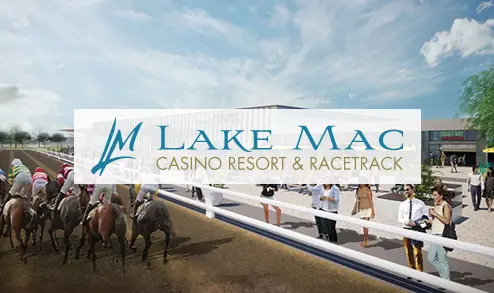 Kyle Fisher, a 42-year-old man, is facing charges after embezzling $230k from a charitable organization called Listen Community Services based in Lebanon, New Hampshire. Fisher took advantage of his position as an executive director of the charity and redirected the funds from the organization to his own bank account. Fisher used the money to wager on sports and play casino games at a casino in Massachusetts.
Kyle Fisher, a 42-year-old man, is facing charges after embezzling $230k from a charitable organization called Listen Community Services based in Lebanon, New Hampshire. Fisher took advantage of his position as an executive director of the charity and redirected the funds from the organization to his own bank account. Fisher used the money to wager on sports and play casino games at a casino in Massachusetts.
US Attorney Jane Young stated that the man has been charged with four counts of wire fraud, and a federal court hearing is scheduled to take place at a later date. The revelations shocked the organization members, who could not believe that a high-ranking trustee could steal the funds. The organization was informed about the fraud shortly before the case was made public. In a statement, the organization expressed its disappointment with Fisher’s actions.
Authorities believe Fisher started embezzling money from Listen Community Services in 2021 when he was still working for the charitable organization. The man reportedly transferred money from the organization’s PayPal account to his bank account. He forged receipts and invoices to cover his tracks. Until September 2021, Fisher stole $230k, which he purportedly lost on gambling at the MGM Casino in Springfield. After months of investigation, the police exposed Fisher’s scheme.
Who Ecaxtly is Kyle Fisher and What Possible Sentence He Could Receive?
The charitable organization stated that the loss did not affect its financial health or the social services it provides. However, Listen Community Services explained that a bigger theft would severely affect the organization and those who benefit from its aid. Fisher started working for the organization as an unpaid volunteer in 2013. But this February, he was forced to resign due to the ongoing investigation.
Further investigation into Fisher revealed that this was not the first time the man had been accused of misappropriating funds. In 2012, a lawsuit was filed against Fisher, claiming that he stole a small amount ranging from $200 to $1k. Fisher pleaded guilty to stealing less than $200. The Michigan State court, however, found the man guilty of stealing a larger amount. In 2014, Fisher declared bankruptcy after moving from Michigan to Cornish.
Listen’s board chairman Jay Benson said that the official investigation following several interim investigations. Upon revealing that Fisher stole money from the charitable organization, the organization escalated the case to the competent governmental authorities.
Court recordings suggest that no phone number was attached to Fisher’s case. Although an attorney is yet to be assigned to the case, it seems that all the evidence is against the defendant. If found guilty, Fisher could receive a hefty fine of up to $250k and a sentence of up to 20 years in jail. The charitable organization hopes that justice will prevail and it will get back the stolen money.
 Erik Gutierrez, a 23-year-old man, pretended to be a Las Vegas hotel owner to convince a casino worker to give him over $1 million for fire safety. According to documents obtained by media agency 8 News Now, Gutierrez is charged with stealing over $100k. Court documents reveal that an unknown man went to the casino cage and said he was the hotel’s owner. He asked the cashier to give him $320k to cover an emergency payment to the fire department.
Erik Gutierrez, a 23-year-old man, pretended to be a Las Vegas hotel owner to convince a casino worker to give him over $1 million for fire safety. According to documents obtained by media agency 8 News Now, Gutierrez is charged with stealing over $100k. Court documents reveal that an unknown man went to the casino cage and said he was the hotel’s owner. He asked the cashier to give him $320k to cover an emergency payment to the fire department.  Pete and Sadie Keogh from Fermanagh, who lost their son Lewis due to gambling-related suicide, are adamant in their decision to launch a campaign to raise awareness about the risks of problem gambling. They intend to roll out the education program all over Ireland and reach as many people as possible.
Pete and Sadie Keogh from Fermanagh, who lost their son Lewis due to gambling-related suicide, are adamant in their decision to launch a campaign to raise awareness about the risks of problem gambling. They intend to roll out the education program all over Ireland and reach as many people as possible.  Real estate mogul Larry Silverstein, who actively participated in the redevelopment of Lower Manhattan and the World Trade Center after the September 11 attacks, decided to join the bidding process for one of the three Vegas-style downstate casino licenses. The real estate magnate has never owned a gambling venue before but believes that such a development will boost New York City’s economy and support the transit system on which it relies.
Real estate mogul Larry Silverstein, who actively participated in the redevelopment of Lower Manhattan and the World Trade Center after the September 11 attacks, decided to join the bidding process for one of the three Vegas-style downstate casino licenses. The real estate magnate has never owned a gambling venue before but believes that such a development will boost New York City’s economy and support the transit system on which it relies.  On June 20, Rhode Island’s Governor Dan McKee signed Senate Bill 948B into law, legalizing online gambling in the state. The event, however, was not commemorated by some ceremony as in North Carolina. The most likely reason for this is that the state’s gambling market is subject to a monopoly held by Bally’s. The state’s contract with Bally’s and IGT is to expire in 2043, and if not extended, other operators will be allowed to enter Rhode Island’s market.
On June 20, Rhode Island’s Governor Dan McKee signed Senate Bill 948B into law, legalizing online gambling in the state. The event, however, was not commemorated by some ceremony as in North Carolina. The most likely reason for this is that the state’s gambling market is subject to a monopoly held by Bally’s. The state’s contract with Bally’s and IGT is to expire in 2043, and if not extended, other operators will be allowed to enter Rhode Island’s market.  Malaysian gambling giant Genting has announced the planned sale of its 15.5-acre site on Biscayne Bay in Downtown Miami fell through after the local developer SmartCity Miami LLC requested changes to the terms of the deal and an extension of its exclusivity. The news comes after the two companies signed a preliminary agreement at the end of April this year. In a joint statement, it was suggested that SmartCity Miami might continue to pursue the acquisition of the land, but no further information was provided.
Malaysian gambling giant Genting has announced the planned sale of its 15.5-acre site on Biscayne Bay in Downtown Miami fell through after the local developer SmartCity Miami LLC requested changes to the terms of the deal and an extension of its exclusivity. The news comes after the two companies signed a preliminary agreement at the end of April this year. In a joint statement, it was suggested that SmartCity Miami might continue to pursue the acquisition of the land, but no further information was provided. As reported by BonusInsider at the beginning of this week, the Ohio Senate passed an omnibus budget bill last week, under which sports betting operators would be required to pay a 20% tax, which represents a 100% increase compared to the current tax rate. But the House did not concur with the Senate and voted down the tax increase proposal by a 3-1 margin this Wednesday. However, the amendment introduced by the Senate would have generated just a small part of the $85.8 billion spending plan.
As reported by BonusInsider at the beginning of this week, the Ohio Senate passed an omnibus budget bill last week, under which sports betting operators would be required to pay a 20% tax, which represents a 100% increase compared to the current tax rate. But the House did not concur with the Senate and voted down the tax increase proposal by a 3-1 margin this Wednesday. However, the amendment introduced by the Senate would have generated just a small part of the $85.8 billion spending plan.  This Wednesday, a bill seeking to allow Maine’s four federally recognized tribes to benefit from specific federal laws passed the House on a 100-47 vote. The legislation now heads to the Senate for consideration. Under the proposed bill, the tribes will not be allowed to take advantage of casino-related federal laws, meaning they will have to receive state approval to open a gambling venue. However, Governor Janet Mills has strongly opposed the proposal, explaining that the U.S. Congress only has the power to grant the tribes access to federal laws.
This Wednesday, a bill seeking to allow Maine’s four federally recognized tribes to benefit from specific federal laws passed the House on a 100-47 vote. The legislation now heads to the Senate for consideration. Under the proposed bill, the tribes will not be allowed to take advantage of casino-related federal laws, meaning they will have to receive state approval to open a gambling venue. However, Governor Janet Mills has strongly opposed the proposal, explaining that the U.S. Congress only has the power to grant the tribes access to federal laws.  This Tuesday, Senator Marty Deacon introduced a legislative measure as part of a Senate Public Bill that would regulate sports betting commercials, bombarding people every day. The legislation aims to protect at-risk players from developing gambling problems and raise awareness among Canadians. Potential measures include banning or limiting the participation of celebrities and famous athletes in sports betting commercials and restricting the use of non-broadcast channels.
This Tuesday, Senator Marty Deacon introduced a legislative measure as part of a Senate Public Bill that would regulate sports betting commercials, bombarding people every day. The legislation aims to protect at-risk players from developing gambling problems and raise awareness among Canadians. Potential measures include banning or limiting the participation of celebrities and famous athletes in sports betting commercials and restricting the use of non-broadcast channels.  In a press release, Hastings Exposition and Racing announced that they submitted a license application to the Nebraska Racing and Gaming Commission on Tuesday, asking the state regulator to allow the company to move its racing license from Hastings to Ogallala in 2024. The company revealed that it plans to establish a $100-million racetrack and casino (racino), which will be called Lake Mac Casino Resort and Racetrack and will occupy a 174-acre site in Ogallala.
In a press release, Hastings Exposition and Racing announced that they submitted a license application to the Nebraska Racing and Gaming Commission on Tuesday, asking the state regulator to allow the company to move its racing license from Hastings to Ogallala in 2024. The company revealed that it plans to establish a $100-million racetrack and casino (racino), which will be called Lake Mac Casino Resort and Racetrack and will occupy a 174-acre site in Ogallala.